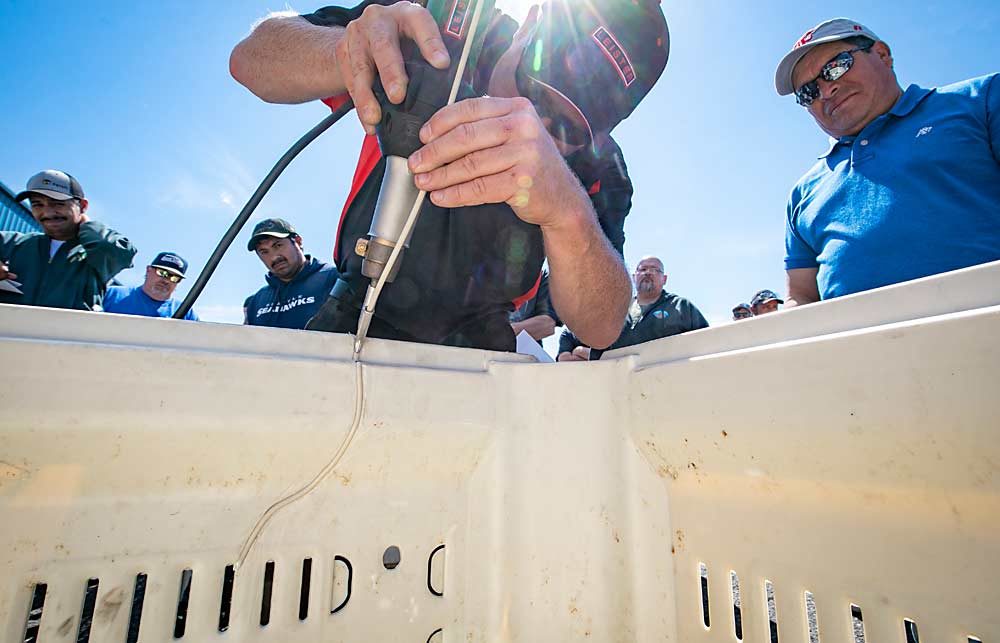
Plastic bins break every now and then. A stack tips over or an errant forklift punctures the side.

“You guys are rough on your bins,” Jennifer England, account manager for Macro Plastics, told a group of growers and packing house employees at the company’s Union Gap, Washington, facility during a workshop in May. “Be nice.”
But when the inevitable cracks happen, don’t be too quick to throw away the containers. They can sometimes be fixed with a plastic-welding gun, a cross between a soldering iron and hot-glue gun that funnels hot air to soften a rod of plastic into a bead that fills and adheres to a crack or divot. The bins’ feet can also be replaced.
Plastic bins now constitute a significant share of the fruit industry’s bin population. The nonporous plastic dries faster, cools quicker and decays slower than wood bins, England said. The growth in organic crops has fueled some of the rise. Macro Plastics, one of the largest manufacturers serving the fruit industry, offers a recycling rebate to growers but winds up with many bins that could have easily been repaired instead, England said.
In May, the company brought in an application engineer from Assembly Supplies Co., which sells hot-air tools, to demonstrate bin repair techniques at workshops in Union Gap and Wenatchee, Washington. Plastic-welding guns also can be rented at some agricultural supply stores.
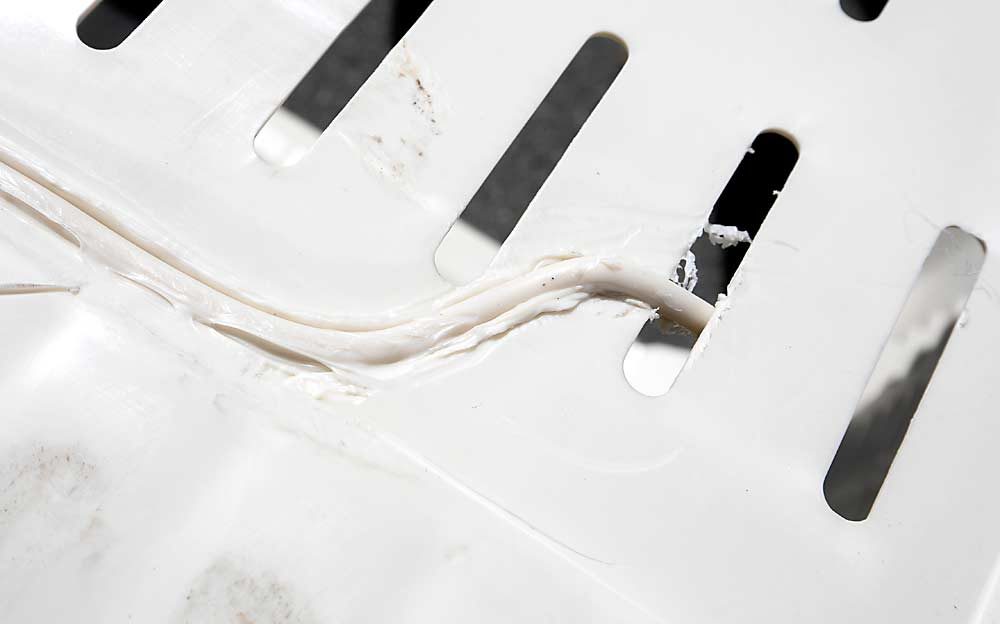
The technique has limits. Most notably, the company does not recommend trying to fix cracks on the corners of bins, which bear the brunt of the weight when they are stacked. But for side cracks, usually caused by being bumped by a forklift, repairing offers a cheaper alternative than replacing.
“You don’t have to just toss bins, you can repair them,” said Justin Meier, the Assembly Supplies engineer doing the demo.
Some large companies do
Washington Fruit has two plastic welding guns, said Eleazar Cardenas, bin lot supervisor at the Yakima packing company, which has 120,000 plastic bins for its organic program. Last year, about 32 bins broke in some fashion. Of those, 12 could be repaired.
“It’s pretty easy,” Cardenas said. “I like it.”
He and some of his workers attended the workshop to brush up on details, such as temperature settings on the gun.
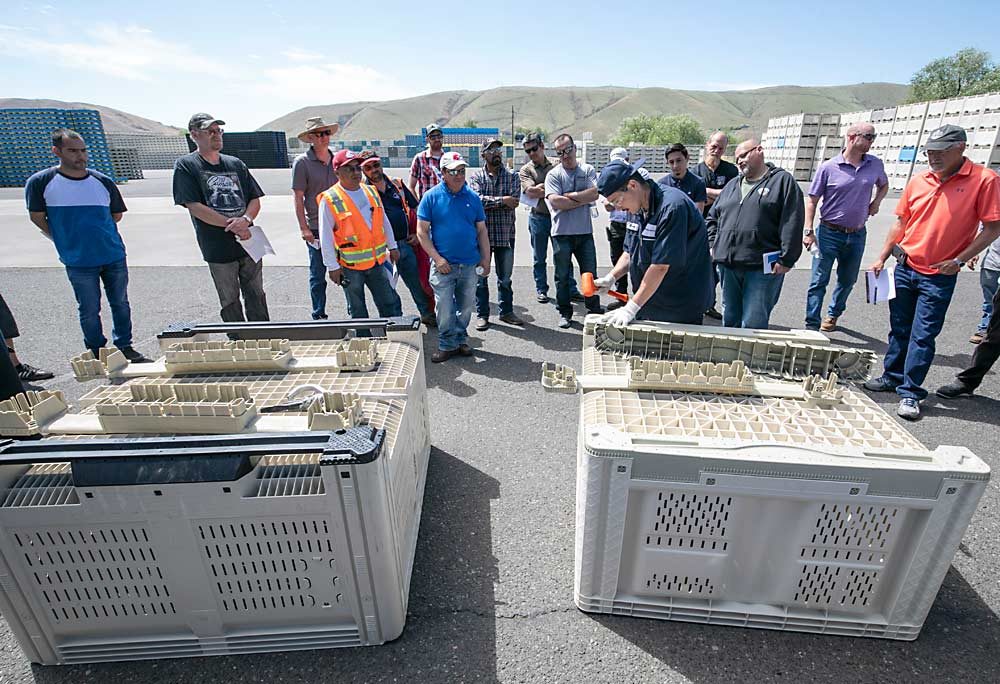
Stemilt Growers helped host one of Macro Plastics’ workshops at its Wenatchee packing facility, where workers have set up a small assembly line for prep work, welding and finish. The company has roughly 250,000 plastic bins for its organic fruit, said Todd George, vice president of production.
Stemilt has been repairing plastic bins since 2010 and now, on average, fixes 2,200 per year, roughly 1 percent of its total, he said. “The bin program is a huge asset to Stemilt as to save money … without buying bins every year,” George said.
Penciling it out
Take a look at some napkin math worked out with the help of a few bin yard veterans: Assume 1 percent of bins will break each year, or 150 for a company with 15,000 bins. Three employees earning a combined $40 per hour could weld roughly 15 bins per day, fixing those bins in 10 days at a cost of $3,200.
Replacing them would cost over $22,000, assuming bins run $150 each.
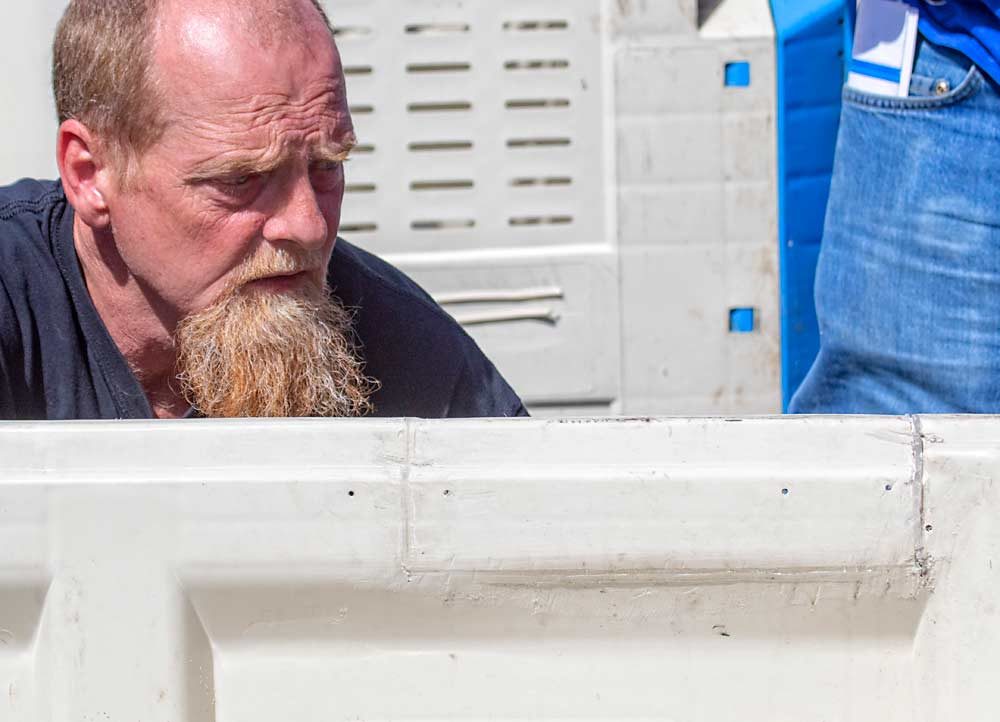
Legacy Fruit switched to plastic bins for organic crops last year and only broke two, said Steve Mork, receiving supervisor at the Wapato, Washington, company. But the workshop may have sold him. “I think it’s going to help us out a lot,” he said.
Northwest Harvest, a regional hunger relief agency, also has purchased a welding gun for its Yakima Warehouse, said Mike Doonan, lead volunteer liaison. The nonprofit has about 250 to 300 cracked bins unused, he said.
The welding process is simple, he said, after he took a turn.
“It looks more intimidating than it really is,” he said. •
Macro Plastics has a bin repair manual on its website at macroplastics.com/images/docs/MacroBin-Repairs-en.pdf
Bin repair tips
Here are a few tips from a bin repair workshop Macro Plastics, an agricultural bin manufacturer in Union Gap, Washington, staged in May with Assembly Supplies Co., an Escondido, California, vendor of plastic bin repair kits.
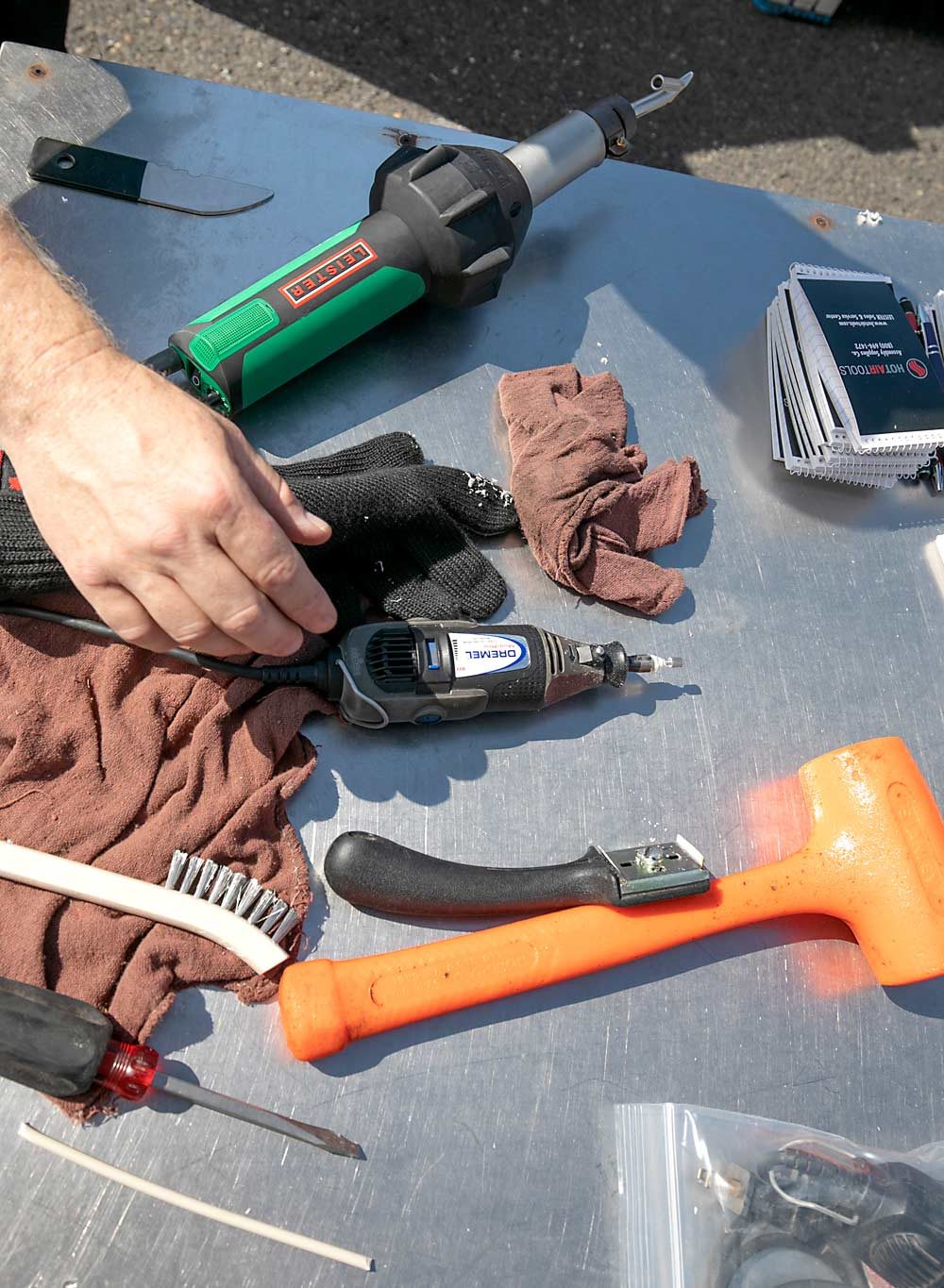
—Use a hot-air plastic-welding tool that reaches high enough temperatures. The manual refers to a Leister hot-air tool, sold by Assembly Supply, which recommends 300 degrees Celsius (about 570 degrees Fahrenheit). Other tools are available online and prices vary but usually top out around $1,000.
—Weld like materials. Don’t mix polypropylene welding rods with high density polyethylene or vice versa. Identify a bin’s material by the recycling stamp, usually on one of the corners.
—Don’t try to repair corner columns. They could fail and cause a stack to collapse.
—Do some prep work. Use a sander or grinder to rough up the area to be fixed, as well as remove dirt and plastic barbs. Routing a crack might be required.
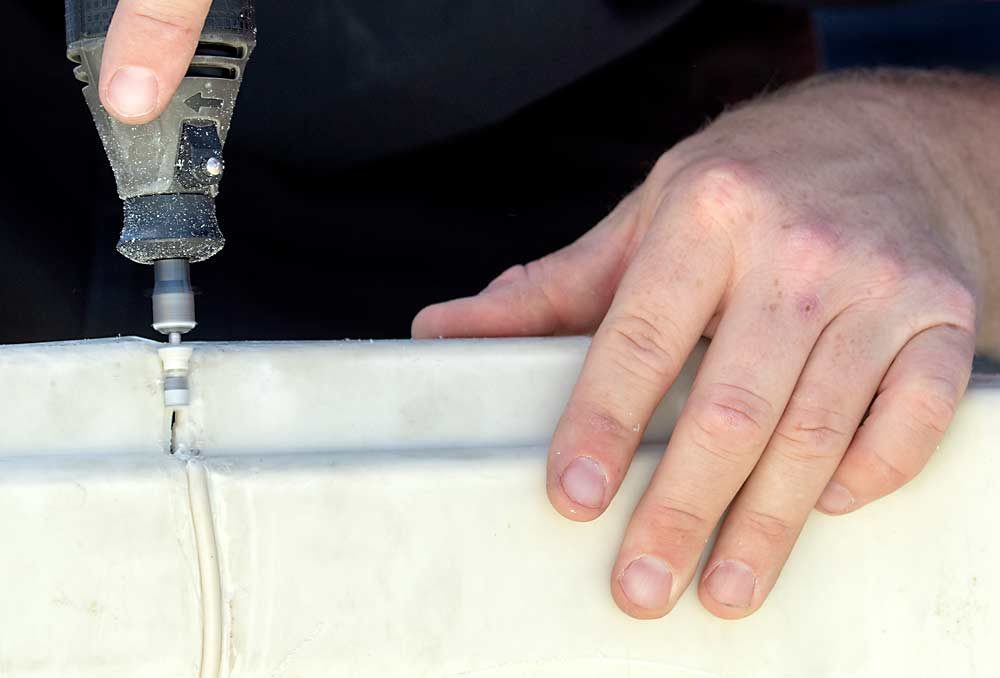
—Plastic welding requires some pressure, so brace the opposite side of the weld with props of wood or other material.
—Try not to stop midstream. Once you start a weld, move in a smooth, continuous motion.
—After the weld cools, use a grinder to smooth the area.
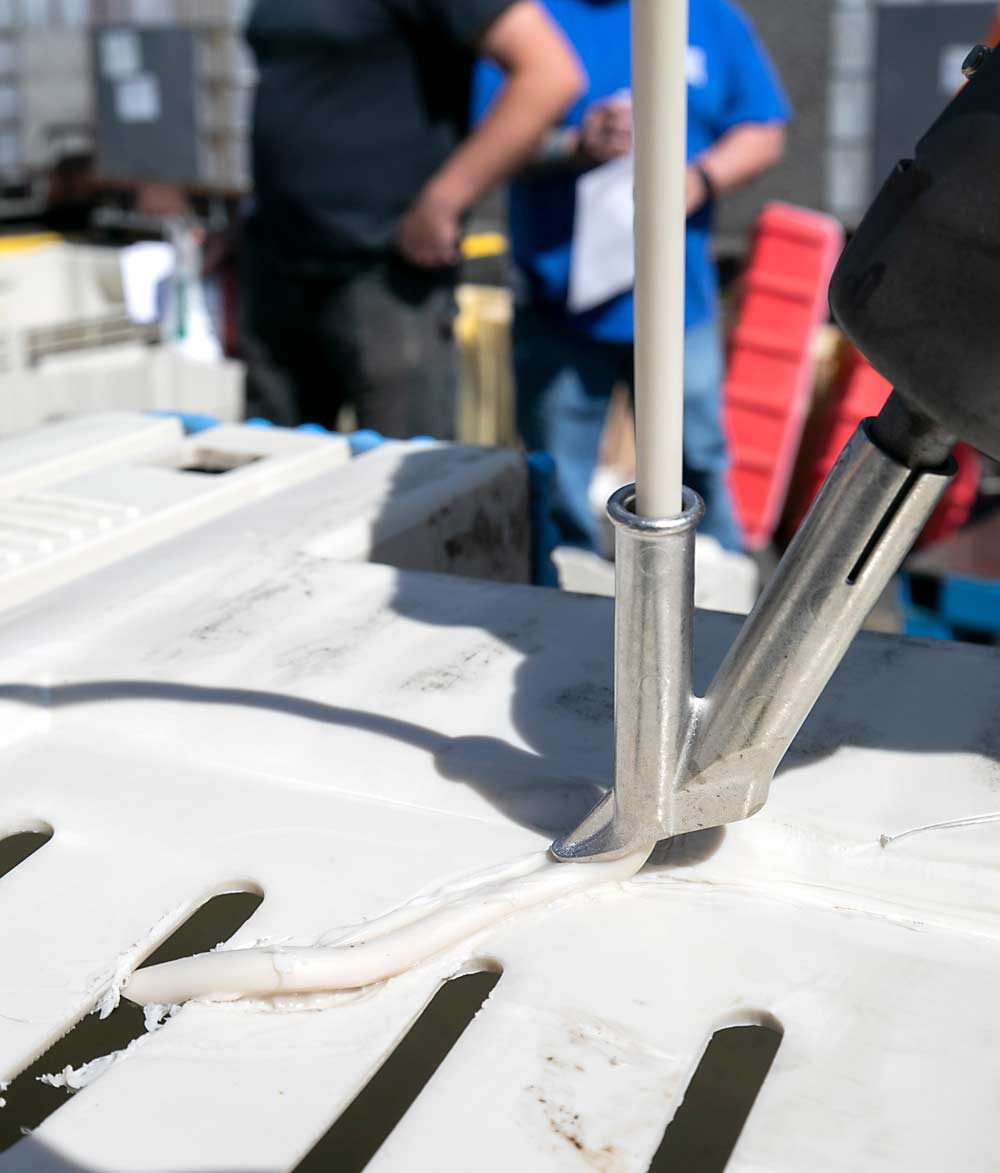
—A word of warning: Though Macro Plastics encourages bin repair, welding voids the warranty on the company’s bins.
—by Ross Courtney






Leave A Comment